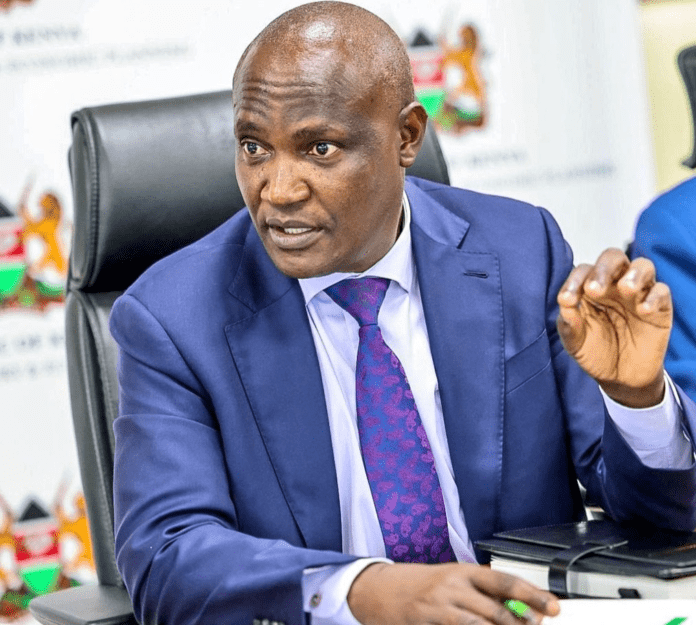A section of Kenyan parents will begin paying national examination fees for their children starting in the 2026 academic year, as the government shifts its subsidy policy to target only learners from poor households.
National Treasury Cabinet Secretary John Mbadi announced the move, noting that the 2025/26 budget will no longer fully accommodate exam fee waivers for all candidates.
Mbadi explained that the decision was informed by a need to cut unnecessary spending and ensure government resources are directed to more pressing economic priorities. He pointed out that the waiver, which was meant to cushion vulnerable families, was currently being enjoyed even by learners in high-cost private schools.
“We have to review the costs in the sense that we must ask ourselves, why should we pay examination fees for all students?” Mbadi posed.
He added: “If your child is learning in a private school where you pay KSh 300,000 or KSh 1 million a year, honestly, can’t you pay KSh 5,000 for the examination fee for that child? Why should you force Kenyans, some of whom can barely eke a living, to pay exam fees for your child?”
The CS stated that the government would retain the subsidy for needy students, and a fair criterion will be developed to determine eligibility for the waiver.
Mbadi noted that in 2026, about three million learners are projected to sit national exams — including 1.2 million candidates for the Kenya Primary School Education Assessment (KIPSEA) and over 960,000 for the Kenya Certificate of Secondary Education (KCSE). The government expects to save billions by targeting only those who truly need financial support.
He clarified that this year’s exam fees are already covered under the current financial year and will not be affected by the policy shift.
The examination fee waiver was first introduced in 2015 under President Uhuru Kenyatta’s administration and initially applied only to learners in public schools. It was expanded to include private school candidates in 2017.
This latest development comes as part of President William Ruto’s broader austerity measures. On May 16, the Cabinet resolved to merge 42 state corporations into 20 and dissolve 16 others, returning their functions to parent ministries in a bid to reduce government spending.





![SHA Suspends Dozens of Health Facilities Over Alleged Fraud [LIST]](https://citymirror.ke/wp-content/uploads/2024/12/image-14-218x150.png)

